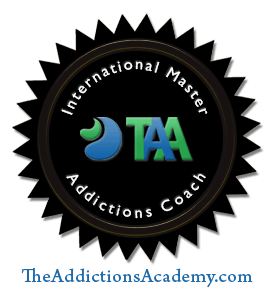How can addiction and recovery help with AI implementation?
Artificial intelligence (AI) is an incredible invention. I use AI daily. I have three AI platforms that I use for different functions (none of which include writing my blogs). While the answers I get from AI aren't always correct, I find they are frequently on the mark. AI makes many tasks more efficient and cost-effective. For example, vibe coding allows anyone to develop an app without requiring advanced coding skills. It's safe to say that I am a fan.
However, I also realize AI is a double-edged sword. Several recent studies have shown that overreliance on AI can have adverse effects on brain function. Furthermore, several AI experts have recently expressed significant concerns about unchecked AI implementation. Predictions about massive unemployment and the end of society as we know it are becoming louder.
AI is already as intelligent, if not more, than the average person. It's not unreasonable to think AI can take over most jobs within the next 5-10 years. The job takeover will likely increase as robotic technology improves. No one seems to have answers to this potentially devastating problem. Some answers provided focus on how great life will be with tons of free time. If we learned anything from COVID, it is that people generally don’t do well with tons of free time. Tons of free time led to increased criminal activity, addiction, and mental health struggles. People need a purpose and direction for their time. Therefore, mass unemployment and excessive amounts of free time should not be AI implementation goals.
Concerns about the effects of uncontrolled AI expansion sound like the outcomes of uncontrolled addiction. We are aware of the damage caused by the addiction cycle. Loss of family, employment, and freedom, and death are all potential consequences. Clearly, this is not the path society wants to travel with AI. Addiction management may have a solution for AI implementation.
Some addictive substances are impossible to live without. One such addictive substance is food. Everyone must eat. However, for some, eating is a trigger for addictive eating behaviors. How does one continue to remain sober from food addiction while continuing to engage in potentially addictive behavior? The answer comes from harm reduction.
Harm reduction is the idea that exposure to the addictive substance can continue, provided substance usage can occur in moderation. Harm reduction is not a great plan for most addictions. However, when you can’t live without exposure to the addictive substance, it’s the only viable option. Harm reduction for food addiction includes avoiding addiction-triggering foods (like processed sugar) and changing one’s approach to eating. Rather than using food to cope with emotions, healthier coping mechanisms are implemented. Cravings are managed by identifying the source of the craving and substituting the desired food with a healthier, less addictive option that can satisfy the craving. For example, a chocolate craving can be satisfied with dark chocolate rather than a processed sugar-laden, high-calorie candy bar. Learning to live with addiction exposure without re-engaging the addiction cycle is the key to effective harm reduction.
AI implementation can follow a harm reduction path. Rather than devouring society as addiction devours the individual, AI can be implemented to work along with the current workforce. Rather than replacing workers, the focus should be on maximizing the efficiency and productivity of workers and reducing repetitive and monotonous elements of their jobs. AI should complement the workforce rather than replace it.
No one forces a person to become an addict. The choice to engage in addiction or not is always available. The same is true for AI implementation. No one forces a company to eradicate jobs by replacing them with AI platforms. AI dominance is only inevitable if the choice to prevent it is surrendered. Lessons learned from addiction and recovery will hopefully guide employers to make the right choice when implementing AI.
Kenneth Markowitz MD, IMAC, CHCQM
